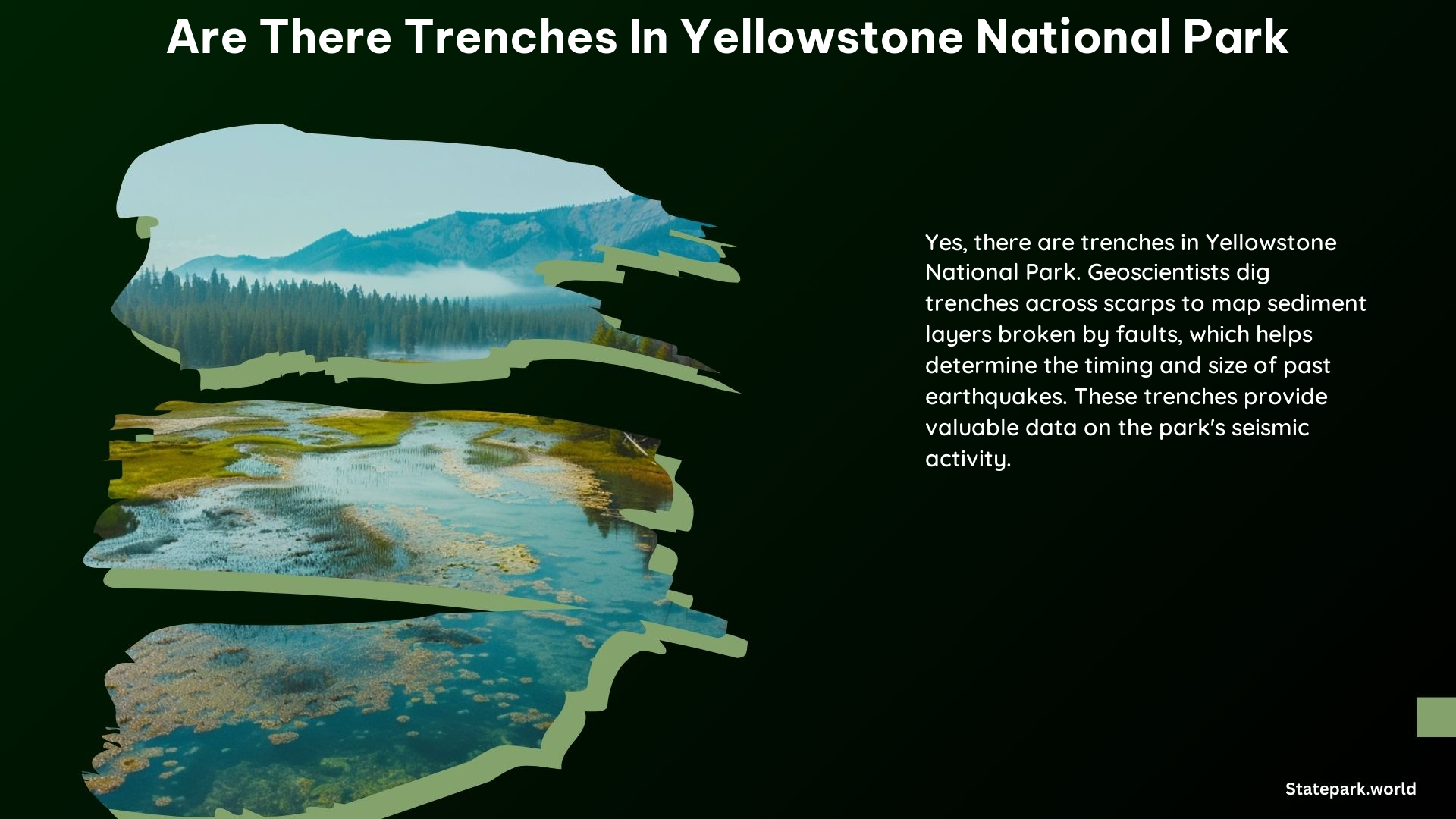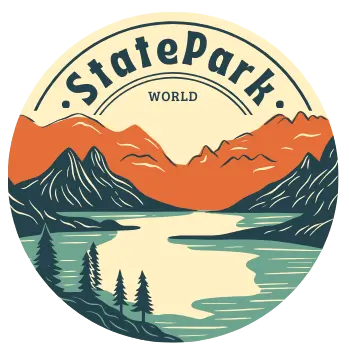Yes, there are trenches in Yellowstone National Park. These trenches are primarily associated with geological processes such as faulting and erosion. In this blog post, we’ll explore the different types of trenches found in Yellowstone and the notable geological formations similar to trenches.
Types of Trenches in Yellowstone National Park
Fault Trenches
Geoscientists dig trenches across scarps to study the Teton Fault, which runs along the eastern margin of the Teton Range. These trenches help scientists understand the timing and size of past earthquakes by analyzing the sediment layers broken by the fault.
Erosion Trenches
Sedimentation and erosion actively shape Yellowstone’s landscape. Rivers like the Lamar River erode their banks, depositing sediment elsewhere. This process creates trenches and reshapes the landscape over time.
Notable Geological Formations Similar to Trenches

Teton Fault Scarp
The Teton Fault is a “normal” fault caused by regional stretching, which has lifted the Teton Range by over 25,000 feet in less than 10 million years. The fault scarp is a break in the earth’s surface that can be up to 20 feet vertical, providing valuable information about past earthquakes.
Geysers and Hydrothermal Features
Yellowstone is home to over 10,000 hydrothermal features, including geysers, hot springs, and mudpots. These features are the visible expression of the immense Yellowstone volcano and are closely related to the park’s geological activity.
Visiting Yellowstone National Park
Entrances
There are five entrances to the park: North Entrance in Gardiner, Montana; Northwest Entrance near Cooke City, Montana; West Entrance in West Yellowstone, Montana; East Entrance on the North Fork Highway from Cody, Wyoming; and South Entrance on the highway from Grand Teton National Park and Jackson Hole, Wyoming.
Seasonal Activities
The park is open year-round, but some facilities and activities are only available during the peak season of May-October. Winter activities include snowshoe walks, cross-country skiing, and guided snowmobile and snowcoach tours.
Fishing and Swimming
Fishing permits are required for all park lakes, ponds, rivers, or streams. Swimming is prohibited in most areas, except for the Firehole Swim Area near Madison Junction during the summer.
References
- https://www.usgs.gov/observatories/yvo/news/partners-geologic-hazards-yvo-and-wyoming-state-geological-survey
- https://www.nps.gov/yell/learn/nature/sedimentation.htm
- https://www.nationalgeographic.com/travel/national-parks/article/yellowstone-national-park
- https://www.nps.gov/grte/learn/nature/faults.htm
- https://www.nps.gov/yell/learn/nature/geology.htm
